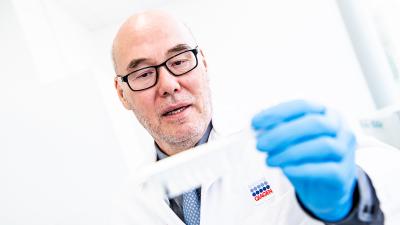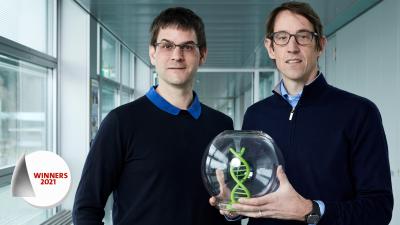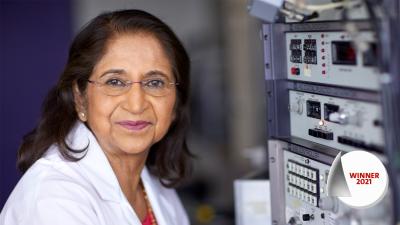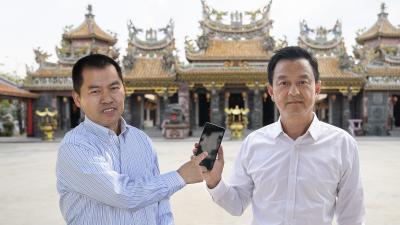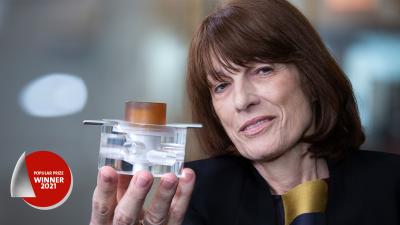Kim Lewis and Slava S. Epstein
Tools to cultivate microbes
Finalists for the European Inventor Award 2021
Medicinal antibiotics are derived from microbial cells, however most of these cells are inaccessible to scientists. Just 1% of microbial cells will produce colonies in a Petri dish and scientists have derived virtually every antibiotic used in modern medicine from this tiny pool. Overuse of existing antibiotics has led to drug resistance among the general population, rendering treatments ineffective and exposing human populations to dangerous infections. By broadening the pool of microbial cells from which antibiotics are derived, scientists will be able to develop new and effective next-generation drugs.
Lewis and Epstein's ground-breaking research into microbiology at Northeastern University (NU) led them to recognise that nutrients from bacteria's native soil were the ingredients missing from conventional Petri dishes. However, unlike pure colonies in a lab, bacterial colonies in nature are intermingled, meaning that Lewis and Epstein had to find a way to separate one colony from another. This led to the development of the patented iChip, short for "isolation chip", a thumb-sized device that captures single microbial cells and sustains them through exposure to nutrient-rich soil using a polycarbonate semi-permeable membrane.
New frontiers for drug development
In 2002, Epstein and Lewis reported a 300-fold increase in bacterial growth in their new device when compared with a conventional Petri dish. This success enabled them to establish NovoBiotic Pharmaceuticals, a privately held company which has been commercialising the device since 2010. Since its launch, the iChip has helped researchers to develop potential candidates for new antibiotics including teixobactin, the first new class of antibiotics announced in decades.
Lewis and Epstein both grew up in the former Soviet Union. Lewis was born in New York and moved to Russia with his mother. There he studied biology and received a PhD in biochemistry from Moscow University in 1980. A Distinguished Professor of biology and founder and director of NU's Antimicrobial Discovery Center, Lewis is a fellow of the American Academy of Microbiology and of the American Association for the Advancement of Science (AAAS). After emigrating to the United States, Epstein joined the University of Wisconsin in 1991 as Assistant Scientist before becoming first a Lecturer and later Senior Scientist and Professor at NU. It was at NU that Lewis and Epstein began their transformative collaborative work on microbiology.
Media gallery
Contact
European Inventor Award and Young Inventors Prize queries:
european-inventor@epo.org Subscribe to the European Inventor Award newsletterMedia-related queries:
Contact our Press team#InventorAward #YoungInventors





